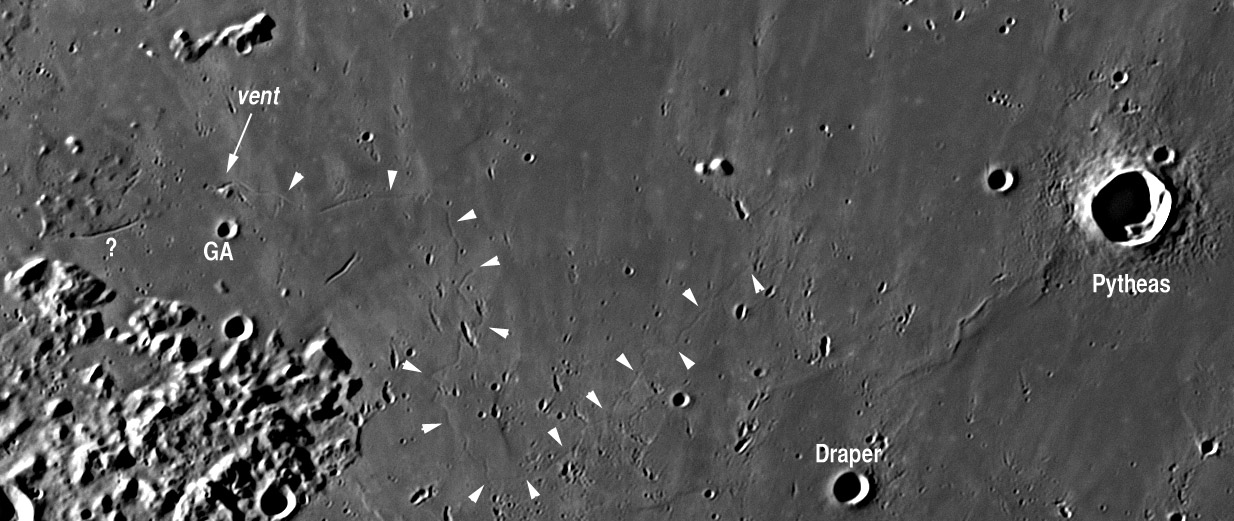Difference between revisions of "October 26, 2009"
| Line 1: | Line 1: | ||
__NOTOC__ | __NOTOC__ | ||
=Wonder Rille= | =Wonder Rille= | ||
| − | |||
<!-- ws:start:WikiTextHeadingRule:0:<h1> --> | <!-- ws:start:WikiTextHeadingRule:0:<h1> --> | ||
<!-- ws:start:WikiTextLocalImageRule:6:<img src="/file/view/LPOD-Oct26-09.jpg/97623593/LPOD-Oct26-09.jpg" alt="" title="" /> -->[[File:LPOD-Oct26-09.jpg|LPOD-Oct26-09.jpg]]<!-- ws:end:WikiTextLocalImageRule:6 --><br /> | <!-- ws:start:WikiTextLocalImageRule:6:<img src="/file/view/LPOD-Oct26-09.jpg/97623593/LPOD-Oct26-09.jpg" alt="" title="" /> -->[[File:LPOD-Oct26-09.jpg|LPOD-Oct26-09.jpg]]<!-- ws:end:WikiTextLocalImageRule:6 --><br /> | ||
| − | <em>image by [mailto:christian.viladrich@neuf.fr Christian Viladrich]</em><br /> | + | <em>image by [mailto:christian.viladrich@neuf.fr" rel="nofollow Christian Viladrich]</em><br /> |
<br /> | <br /> | ||
| − | The recent [ | + | The recent [/October+23%2C+2009 kerfuffle] about a small skylight in a sinuous rille reminds me that lava channels and tubes are very common landforms in fluid basaltic lava flows. In fact, such volcanic conduits are a major way that lava is transported downstream from a vent. As resolution improves - especially with appropriately low solar illumination - more and more rilles will be discovered. But I didn't expect to see this confirmed by a lunar image taken from Earth! Christian's [http://astrosurf.com/viladrich/astro/moon/closeup/Copernic-C14-F20-26July2008-stk.jpg" rel="nofollow truly spectacular] broad scene centered on Copernicus is full of stunning details, and if you tear your eyes from the distraction of Copernicus, many rilles can be detected. The most amazing is a 240 km long one (not counting all the tight bends) west of Pytheas in southern Mare Imbrium. This has been known from Apollo Metric Camera [http://www.hq.nasa.gov/alsj/a17/AS17-139-21291HR.jpg" rel="nofollow images], but this may be the first time that <em>any</em> image has captured the entire rille. It appears to start at a vent just north of T. Mayer GA, and then meanders - I count 34 significant bends - east, south and then northeast before disappearing under a small cluster of Copernicus secondary craters. The rille is about 1 km wide and in some places - not always controlled by being perpendicular to illumination - is better defined than others. It will be fascinating when Kaguya or LRO high resolution topography is available to see how gentle this slope is; from their chemistry it is predicted that lunar lavas were much more fluid than terrestrial ones so only a slight slope would facilitate lava flowing. The conspicuous rille segment marked with a question mark is in line with the proposed vent area of this rille - already [http://www.hq.nasa.gov/alsj/a17/AS17-139-21291HR.jpg" rel="nofollow named] after the nearby Draper crater - so it is possible that an uncollapsed lava tube connects the two. But I think it is more likely that the question mark rille is on a [http://www.lpod.org/archive/LPOD-2004-07-28.htm" rel="nofollow kipuka] of older material and is unrelated to the Draper Rille. What do you think?<br /> |
<br /> | <br /> | ||
| − | <em>[mailto:tychocrater@yahoo.com Chuck Wood]</em><br /> | + | <em>[mailto:tychocrater@yahoo.com" rel="nofollow Chuck Wood]</em><br /> |
<br /> | <br /> | ||
<strong>Technical Details</strong><br /> | <strong>Technical Details</strong><br /> | ||
| Line 15: | Line 14: | ||
<strong>Related Links</strong><br /> | <strong>Related Links</strong><br /> | ||
Rükl plate [http://the-moon.wikispaces.com/R%C3%BCkl+20 20]<br /> | Rükl plate [http://the-moon.wikispaces.com/R%C3%BCkl+20 20]<br /> | ||
| − | Christian's lunar closeups [http://astrosurf.com/viladrich/astro/moon/closeup/closeup.html webpage]<br /> | + | Christian's lunar closeups [http://astrosurf.com/viladrich/astro/moon/closeup/closeup.html" rel="nofollow webpage]<br /> |
<br /> | <br /> | ||
<hr /> | <hr /> | ||
Revision as of 19:14, 4 January 2015
Wonder Rille

image by " rel="nofollow Christian Viladrich
The recent [/October+23%2C+2009 kerfuffle] about a small skylight in a sinuous rille reminds me that lava channels and tubes are very common landforms in fluid basaltic lava flows. In fact, such volcanic conduits are a major way that lava is transported downstream from a vent. As resolution improves - especially with appropriately low solar illumination - more and more rilles will be discovered. But I didn't expect to see this confirmed by a lunar image taken from Earth! Christian's " rel="nofollow truly spectacular broad scene centered on Copernicus is full of stunning details, and if you tear your eyes from the distraction of Copernicus, many rilles can be detected. The most amazing is a 240 km long one (not counting all the tight bends) west of Pytheas in southern Mare Imbrium. This has been known from Apollo Metric Camera " rel="nofollow images, but this may be the first time that any image has captured the entire rille. It appears to start at a vent just north of T. Mayer GA, and then meanders - I count 34 significant bends - east, south and then northeast before disappearing under a small cluster of Copernicus secondary craters. The rille is about 1 km wide and in some places - not always controlled by being perpendicular to illumination - is better defined than others. It will be fascinating when Kaguya or LRO high resolution topography is available to see how gentle this slope is; from their chemistry it is predicted that lunar lavas were much more fluid than terrestrial ones so only a slight slope would facilitate lava flowing. The conspicuous rille segment marked with a question mark is in line with the proposed vent area of this rille - already " rel="nofollow named after the nearby Draper crater - so it is possible that an uncollapsed lava tube connects the two. But I think it is more likely that the question mark rille is on a " rel="nofollow kipuka of older material and is unrelated to the Draper Rille. What do you think?
" rel="nofollow Chuck Wood
Technical Details
26 July 2008 - 3h30 mn UT to 4h10mn UT - (Alt 56°) -Grand Colombier 1300 m Celestron 14 at F/20 + Skynyx 2.1 M video camera. 1000 images for each frame. I have over-enhanced this piece of Christian's mosaic - sorry! - to bring out the rille.
Related Links
Rükl plate 20
Christian's lunar closeups " rel="nofollow webpage



